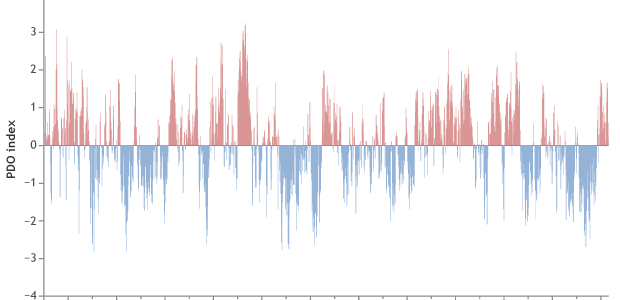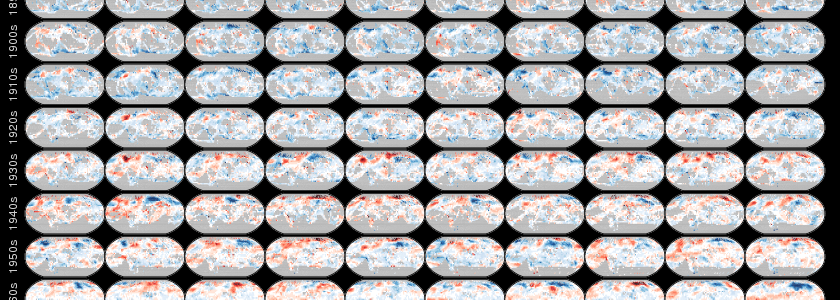Climate science
-

The Minneapolis Times-Tribune published an Associated Press report this week on a 17-year study undertaken by Stanford University scientists to test the impact of more carbon dioxide, more heat, and more nitrogen on plant growth in test plots outside Los Angeles. Test plots (132 in all) were treated with different amounts of carbon dioxide or…
-

The Weather Channel posted an interesting map earlier this month showing how the date of the peak heat in the summer has changed over time. Parts of the US are peaking later in the summer, but in most of the Southeast, the average date of the highest temperature is actually coming several days earlier now…
-

In this blog I talk a lot about El Niño, La Niña and ENSO and their impacts on the climate of the Southeast, which are statistically quite significant, at least in winter. But there are other atmospheric oscillations that can also affect climate over time. One of these other oscillations is the Pacific Decadal Oscillation.…
Posted in: Climate science -

In the news today I heard that the FDA is recommending that we test all blood donations for the Zika virus, which is carried by mosquitoes and can cause severe birth defects in babies if the mother gets infected during pregnancy. Zika is just one of several severe diseases that is carried by mosquitoes in…
-

The use of small multiple images is one that allows you to look at changes in the individual images differently since the format of each image is the same. I love this collection of small multiples of global temperature because not only does it show changes in temperature over time (see how warm the earth…
Posted in: Climate science -

The US Environmental Protection Agency has announced that fact sheets for each state describing how climate change is affect that state are now available. You can see the list and download them at https://www3.epa.gov/climatechange/impacts/state-impact-factsheets.html.
-

NOAA announced that they have new and expanded tables of normal temperature and precipitation values now available on their web site. Typically, climatologists consider 30 year averages to be “normal” climate conditions, and they are updated every ten years. The current 30-year normal period is 1981-2010. But some groups like utilities want normals over different…